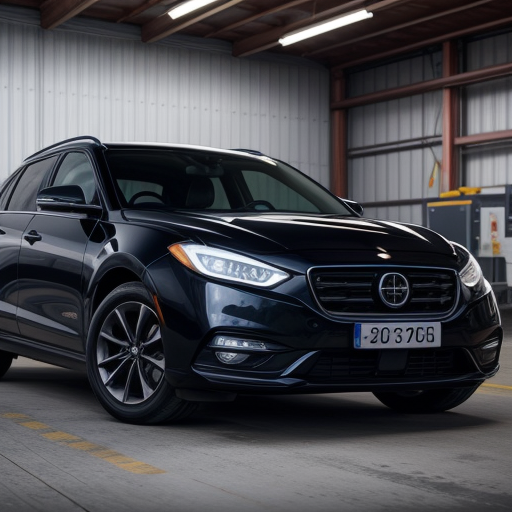
Biden's decision to impose tariffs on Chinese EVs could have a significant impact on the US auto industry and the country's climate goals.
- Pros of the tariffs: The tariffs could protect US jobs in the auto industry and help to develop a domestic EV industry.
- Cons of the tariffs: The tariffs could increase the cost of EVs for consumers, slow the adoption of EVs in the US, and harm the country's climate goals.
The Biden administration has imposed new tariffs on Chinese goods, including a 100% tariff on electric vehicles (EVs). The policy could prevent the world's most popular, most affordable EVs from ever making their way onto America's roads.
The reason the president believes workers at companies like Ford and General Motors need protection is that China has rapidly become a dominant global force in electric vehicle production. Thanks to hefty government investment, cheap labor and their country's robust reserves of key minerals, Chinese automakers have developed a wide range of EVs that are of comparable quality to anything made in the United States but often sell for a fraction of the price.
Biden considers EVs, which are far more efficient than gas-powered cars, to be a critical part of the green energy transition needed to stave off the “existential threat” of climate change. To help Americans make the switch, he pressed Congress to pass bills that include generous subsidies to make EVs more affordable and billions of dollars to help build out the nation’s charging infrastructure.
China's EV boom has put two of Biden's top priorities in direct conflict.
- Welcoming them into the U.S. market could provide a huge boost to America's green transition, but it might also deal a massive blow to the U.S. auto industry — and possibly cost a lot of autoworkers their jobs.
- With this new tariff, Biden has made clear that he believes the dangers of Chinese EVs far outweigh the potential climate benefits. In his view — one shared by the U.S. automakers, their workers’ unions and former President Donald Trump — there is simply no way for American companies to compete with China’s “unfair [trade] practices.”
According to the Alliance for American Manufacturing, cheap Chinese EVs could become an “extinction-level event” for the American auto industry. Supporters of the tariff say the U.S. needs more time to develop a domestic EV industry that is sustainable, efficient and capable of competing in the global marketplace.
But critics of the plan say Biden is betraying his climate goals and denying American consumers affordable EV options they desperately need so that Detroit can be saved from its own mismanagement of the electric vehicle market. They worry that shielding American automakers from real international competition will allow them to cling to their failing business model indefinitely and ultimately cause the U.S. to fall irretrievably behind the rest of the world.
Biden has made clear that he believes the dangers of Chinese EVs far outweigh the potential climate benefits.
- Biden told Yahoo Finance that he expects China to retaliate against his new tariffs, but it’s unclear what form that retaliation might take or how it might affect American consumers.
- Chinese automakers are reportedly looking to start making EVs in Mexico to get around the new tariffs, but the White House says the U.S. may impose new trade restrictions to close that potential back door into the U.S. market.
The American auto industry will die if forced to battle China on level ground.
| Perspective | Arguments |
|---|---|
| The American auto industry will die if forced to battle China on level ground | |
| Biden shouldn’t rescue U.S. automakers from their own bad decisions | |
| The U.S. can’t allow China to own the green energy future |

.png)
0 Comments